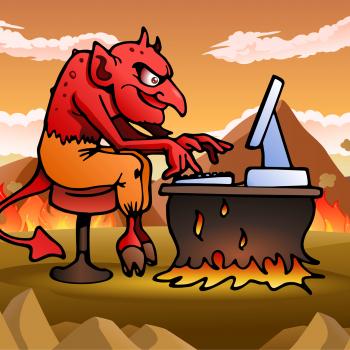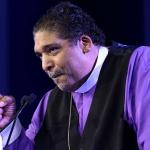
I spent several hours recently perusing a couple of Facebook discussion groups primarily dominated by those who hold to a more conservative (read: no gays) theology than I do. I admit I don’t get the hatred spewed there–but I do believe there is much fear of loss behind it. Fear of loss of scriptural authority, of power, of certainty, of security.
But even with compassion over fear since I’ve certainly had my own to deal with, I admit to deep despair today. Too many church mystery worships with groups that think they and they alone have the final answers that determine eternity; too many nasty, name-calling fights in the name of Holy God; too many slimy, secretively sinful clergy getting rich off the backs of the poor; too much politics and too little willingness to follow Jesus to the cross.
I also admit that my week in the Holy Land affected me profoundly. In preparation for and especially during that week, I steeped myself in the Gospels. I re-educated myself about the culture of the Jewish world when Jesus was born. I turned again to the blessing given by God to Abraham that was intended to be a blessing to the entire world. I sat in the Garden of Gethsemane where Jesus begged to be spared what was coming. I panicked when walking into the dungeon of Caiaphas palace, a windowless, stinking place where Jesus was probably dropped in and hauled back up by ropes to face his judges. I wept inconsolably at the ninth station of the cross that marks the spot where the spikes were pounded into Jesus’ flesh.
As I read the Gospels I find nothing in there that says, “Purify your doctrine and expel the heretics and unclean.” Instead, I saw a call to humility, a passion for the unclean, an insistence on carrying the cross, the embrace of betrayal, the offering of forgiveness, the joy of resurrection that comes by removing all human barriers to the Holy of Holies, which permits everyone unfettered access to the Love that began and sustains the cosmos.
This place where we come face to face with total love transforms us.
Screaming that we are hopeless sinners and apostates who are going to face the judgment seat does nothing but engender more fear and more despair.
Then this afternoon, I read this article. I beg you to read it. It speaks eloquently about children around the world who survive on the streets, essentially turning feral in their short and brutish lives.
These are the least of these of whom Jesus spoke when he mentioned the separation of the sheep and goats on the day when humanity faces the Holy One. These are the most despised of humanity, hidden, invisible, ill, stunted, and worse than malnourished. These are the ones who stay neglected, abused and used in our many ridiculous arguments about who gets to have sex with whom and who may and may not engage in the covenant of marriage.
When Jesus said, “Forgive them,” while on the cross, it was us to whom he spoke: the well-fed, the ones with time and intellect for arguing how many angels dance on the head of a pin or whether healing on the Sabbath violated God’s law, or whatever the current minuscule argument that will separate people who insist that Christ is Lord in their lives.
It is to us that forgiveness is offered because we really don’t know how much harm we are doing or, probably more true, we don’t want to know or know and don’t care. And we’d better be thankful for that forgiveness because we are the ones who should indeed face the wrath of God. Our self-absorbed ways leave the innocent with no experience of grace, not to mention no food, no clothes, no homes and no love–and then condemns them for not “accepting Jesus as Lord.”
We’d better start being thankful for grace and then get busy handing it out.
But we won’t. We’re too busy pretending to be the church.
As I write this, my five-year-old grandson sits next to me. He wanted me to play a game, but I told him that I needed to write about children that have so little. I started to cry when I was speaking about these lost ones. His own eyes filled with tears. He relinquished the opportunity to play and asked only to sit next to me while I write.
He, this little innocent one, is capable of showing compassion.
But what I read on Facebook yesterday included comments like these as part of the deeply condemnatory language about brothers and sisters in Christ who differ on an issue that is becoming increasingly meaningless:
“I don’t consider a man that preaches homosexuality to be a Christian brother. He is more like a wolf in sheep’s clothing.”
“Anyone that believes in homosexuality is a IDIOT.”
These came from those who consider themselves prophets in the church, turning away the ignorant from hell-fire and damnation.
May God have mercy on their souls.
As for my beloved United Methodist Church, I’m aware that right at the moment, hundreds and thousands of dollars are being spent just trying to get factions at the table and engage in actual conversation with each other. We create new restructuring plans and campaign mightily for their acceptance.
And so we fiddle away while Rome burns.
No wonder the Spirit of God has deserted this place.
















